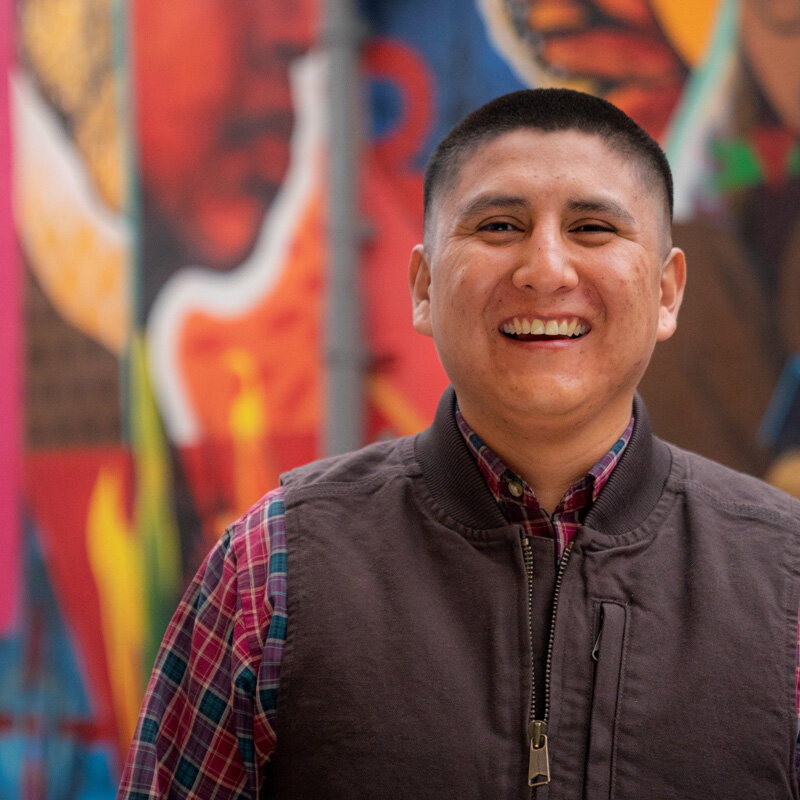IRD Newsletter - Spring 2022
The Indian Resources Development serves and collaborates with diverse groups of people, and this newsletter attempts to be a resource for all.
Table of Contents
-
IRD Internship Partnership and IRD College Advisory Committee
-
American Indian Business Enterprise and IRD Provide Entrepreneurial Opportunities
IRD Adds New Member to the Team
Lena Sanchez, the new Program Specialist for the IRD department, comes from the Jicarilla Apache Nation of the Ollero Clan. Lena is currently a graduate student pursuing an M.A. in Agriculture and Extension Education. Lena graduated in 2020 with a B.S. in Animal Science with a minor in horse management from New Mexico State University. Lena grew up on a ranch in northern New Mexico close to the Jicarilla Apache Reservation. Since high school, Lena has been active in advocating for agriculture in Indian Country. Lena developed a passion for agriculture in the mountains of northern New Mexico where she and her father raised sheep, cattle and horses. Lena learned to care for the land, the water, livestock and wildlife from the generational knowledge passed down from her family. In high school she became involved in youth programming relating to agriculture specifically with the Intertribal Agriculture Council, the New Mexico Cattle Grower’s Association and the New Mexico Youth Ranch Management Camp. Through experiences with these organizations Lena developed a strong interest for developing youth programming that assists youth in career and college exploration. Teachings from her Jicarilla culture instilled in Lena a strong sense of community and family which has inspired her to work towards a better future for Native youth. Through her work with the IRD, Lena hopes to further develop educational and career opportunities for Native youth in the state. Her ultimate goal is to work towards tribes being able to employ their own youth after they pursue opportunities in higher education. Lena believes that only when tribes can employ, provide for and feed their own members can they be truly sovereign nations. Lena will work to ensure that Native students educational as well as cultural needs are met by establishing long lasting relationships between IRD with tribal leadership, tribal education departments, high schools and higher education institutions in the state.

IRD Expands Office Locations to Northern NM
Since its inception, Indian Resources Development (IRD) was conceived as a statewide program to serve and collaborate with all tribal nations, higher education institutions, and Native American students in New Mexico. Thus, the main goal of the IRD is to build lasting relationships with these groups and individuals, and that is difficult to do being located solely in Las Cruces. To be better stewards of IRD resources and funds, a statewide geographical expansion plan was developed with the goal of making it possible for IRD to be closer to those with whom it partners and serves.
In 2021, IRD’s leadership was relocated to Albuquerque and at the beginning of 2022 a program specialist was hired on the Jicarilla Apache Nation. IRD now has offices in southern, central, and northern New Mexico and is seeking to open a staff position in the western part of the state, in or near Farmington. Student assistants represent the IRD on the NMSU main campus
To continue advancing the goals established in the geographical expansion plan, IRD must seek additional funding to support staff positions in western and north central New Mexico. IRD hopes that being closer to Native communities, high schools and higher education institutions that serve the majority of Native American students in the state, will be a better use of resources and make IRD services more readily available to its constituents.
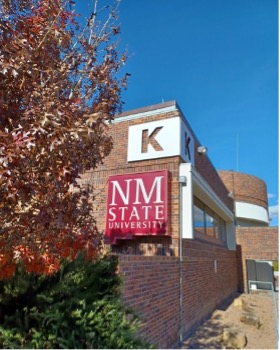
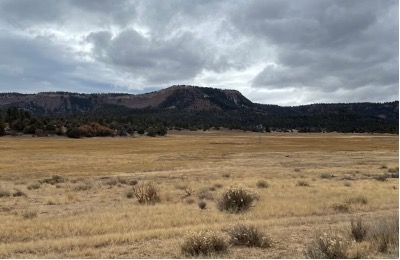
IRD Adds Energy as a Focus Area
What is energy? What was energy to Indigenous people? Well, energy can be defined as the ability to do work. We must acknowledge the people of the past for their contributions since we now know that energy may be converted to fit our needs. For example, our people may have used heat in the form of fire for a variety of reasons. From firing pottery to cooking food, or even staying warm, energy has its uses. As we transition into the present day, we now know that energy can come in the form of potential or kinetic energy. In addition, energy may come from different sources such as renewable or nonrenewable energies. As a result, our understanding of energy will continue to grow. Especially with higher education continuing to offer a variety of degrees and certificates focused around energy. IRD is proud to offer energy as a new focus area and will offer such degree information from New Mexico community colleges, junior colleges, tribal colleges, and universities on the IRD website.
IRD Student Assistant Completes an Internship with PNM
When it comes to employers, one of the questions that they will ask is if you had done any internships or have work experience. Internships are a great way to gain work experience in areas of interest that appeal to you. Thus, I had the privilege to experience the PNM American Indian Summer Internship Program. Through this unique internship program, I was able to begin understanding the importance of utility companies, energy, and the significance of the relationships established between PNM and the tribes within New Mexico. There were many aspects or components of utility companies that I did not take into consideration. For example, before installing any sort electrical infrastructure into an area, there must be environmental assessments, deciding whether it is better to install electrical lines above ground or below ground, and so on. These are just a few examples of what utility companies must take into consideration.
Through the internship, I was able to see the connection between the classroom and its application to the “real world.” Another valuable aspect was that I was able to better understand my strengths and areas that I need to improve on. On one side of the coin, I was able to identify my strengths, and on the flip side of that coin, I was able to see in what areas I am lacking. With this in mind, I am able to further construct myself to be a well-rounded individual. The professionals that you meet may offer advice that may be beneficial. For instance, these professionals have been in our shoes at one point and are more than willing to share their experience and knowledge with interns. Asking questions and showing interest shows employers that you are eager to learn and will reflect positively on you as an individual. I highly encourage any of my fellow peers to seek out internships that match their preferred area of interest. The work experience and connections that you will gain will be valuable to your career path. - Joshua Capitan
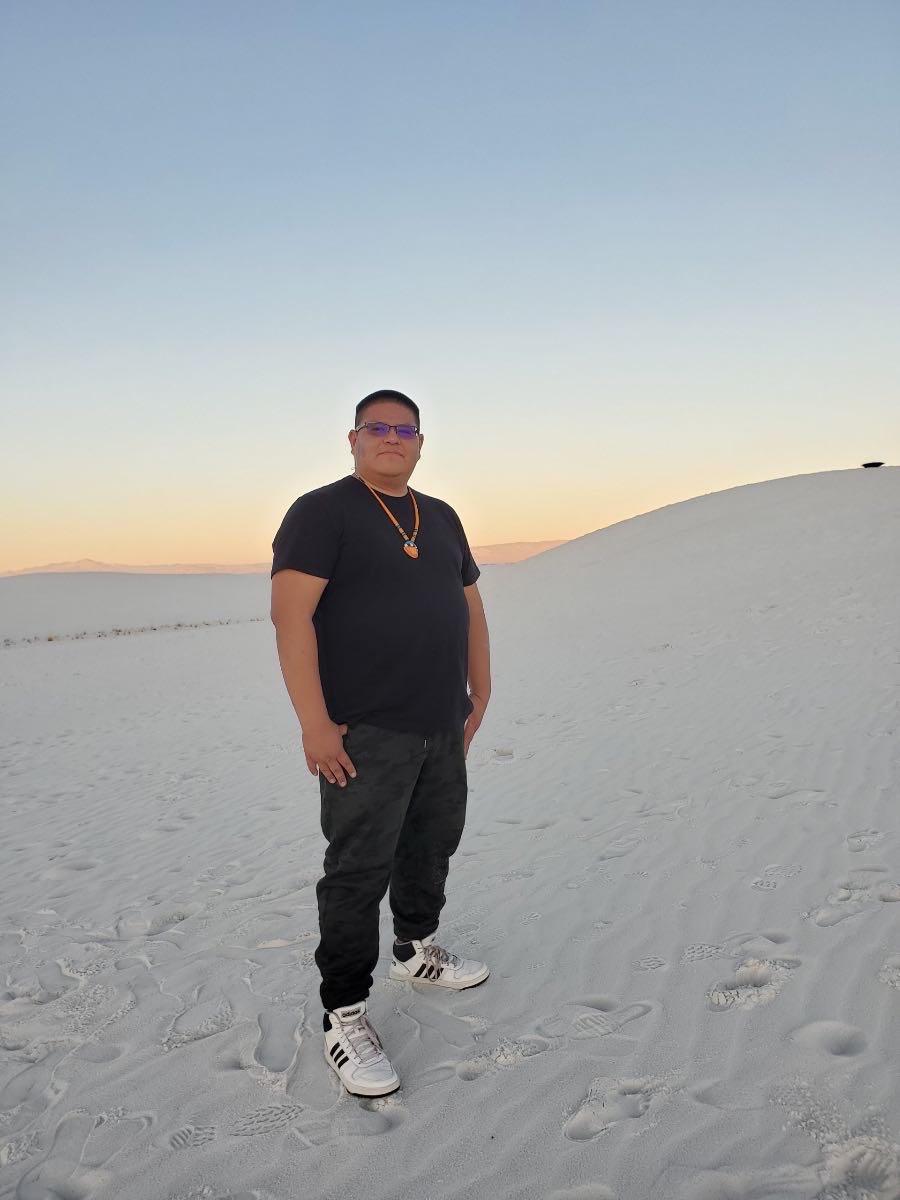 Photo of Joshua Capitan, IRD Student Assistant
Photo of Joshua Capitan, IRD Student AssistantExtending the Season Production: Food Growing Alternatives for Tribal Communities
There has been a great deal of reflection and discussion about how much the pandemic made evident the absence of food centers at the local level, even at the family level. In response to the interest expressed by members of several tribal communities in New Mexico, IRD, together with the Flower Hill Institute and the Indian Pueblo Cultural Center began conversations about how to address the increasing interest in growing food for family and community consumption. The group decided to plan a series of six monthly workshops regarding alternatives to extending the season production via the use of hoop houses and greenhouses. After the plan was in place, other organizations joined the group, Pueblo of Jemez Natural Resources Department, Santa Ana Pueblo Cultural Program, Dancing Butterfly Naturals, and NMSU Cooperative Extension Service. The topics of the first four workshops covered the basics of greenhouses and hoop houses; climate, plan selection, season, and soil considerations; and design elements and structure options. The next set of workshops will cover other aspects of production, management, and maintenance, with an in person session where participants will have the opportunity to take part in building a hoop house structure. The April workshop will be in person, information will be posted on the IRD Facebook page

Photo of the inside of a hoophouse
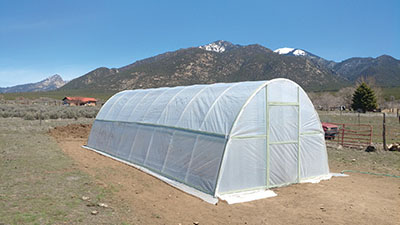
Photo of a hoophouse
IRD Supports Students at the 4-H Senior Leadership Retreat
The IRD mission is to connect Indigenous students in New Mexico with educational and enrichment opportunities in the fields of agriculture, natural resources, engineering, energy, and business. The New Mexico State 4-H Team hosted the 2022 Senior Leadership Retreat (SLR) on January 21-23 in Las Cruces, NM. SLR is an annual conference held for NM 4-H members to learn about careers, community service, mental health support, and leadership opportunities. This year's theme was “4-H Saves You.”
IRD supported five Native American high school students at this year’s Senior Leadership Retreat. Below are a few testimonies from the students:
“SLR was very fun and educational. One of my favorite things that I learned was that they use drones for land search and for irrigation.”
“I learned a lot from each of the workshops. One of my favorite workshops was the Emergency Medical Technician (EMT) Program.”
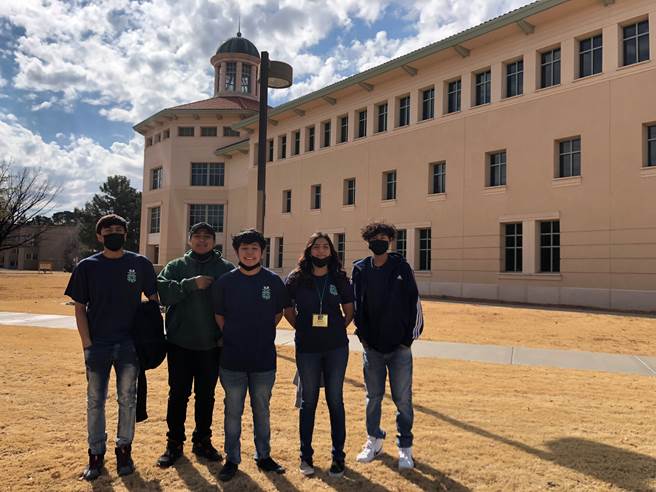
Students supported at the 2022 Student Leadership Retreat
James Calabaza of Santo Domingo Pueblo Follows His Passion
James Calabaza started his journey in Santo Domingo Pueblo, New Mexico which led him to where he is in Fort Collins, CO. After going to college at Colorado State University, James' first work experience was in the government sector. According to James, people can gain experience in the government sector, however, he felt a detachment from Native American communities. James was not able to see the impact and he wished to do something closer to Native communities. Now, James works with Trees, Water and People (TWP) in Fort Collins, CO.
TWP gives James the freedom to grow as an individual in the way he envisions. With the teachings and understanding of traditional knowledge, and his experience and knowledge gained from higher education, James works to support Native American communities, so that they can grow and flourish. For example, James was able to work with Santo Domingo and other pueblo communities within the Rio Grande region on regenerative and sustainable land management projects.
James wants to remind high school students, "to talk to teachers and advisors as they begin their career path and ask vital questions that may relate to the degree of their choice. Those individuals are there to help you. As for college students, do not be afraid to take risks and to be proud of who you are. Whether you are just about to graduate from high school to currently being in college right now. Don’t shy away from who you are and to remember the resilience that you carry and the knowledge that has been passed down."
2022 Legislative Sessions Regarding Tribal Education
The 2022 New Mexico State Legislative Session has come to a successful end for the future of Indian Education. Since the Yazzie/Martinez case of 2018, Indian education has been a hot topic in the Roundhouse. Several bills made their way to the Roundhouse this Legislative Session that detailed how tribes, schools and the state will work to honor the judge's decision. In response to the Yazzie/Martinez case a Tribal Remedy Framework was developed by the UNM Native American Budget and Policy Institute (NABPI) to outline the steps needed to ensure the education system is meeting the needs of Native students. NABPI is an organization that conducts research and analysis in order to improve health, education and economic well-being in Native communities. House Bill 60 was a win for Tribal Education, securing equal pay for Native language teachers. Other bills under the Tribal Remedy Framework are either in the House Appropriations and Finance Committee or on the House Calendar and are listed below.
- HB 87 Indian Education Fund Distribution
- HB 90 Appropriations for Yazzie Lawsuit
IRD Resource for High School Students
IRD ACT and SAT Resource
Do you have high school students who need information about the ACT and SAT College Admission tests? IRD offers a webpage that provides resources to learn about the ACT and SAT tests, and how to register for the tests. Do not wait until the last minute to begin learning about the tests. Visit IRD's ACT and SAT Webpage.
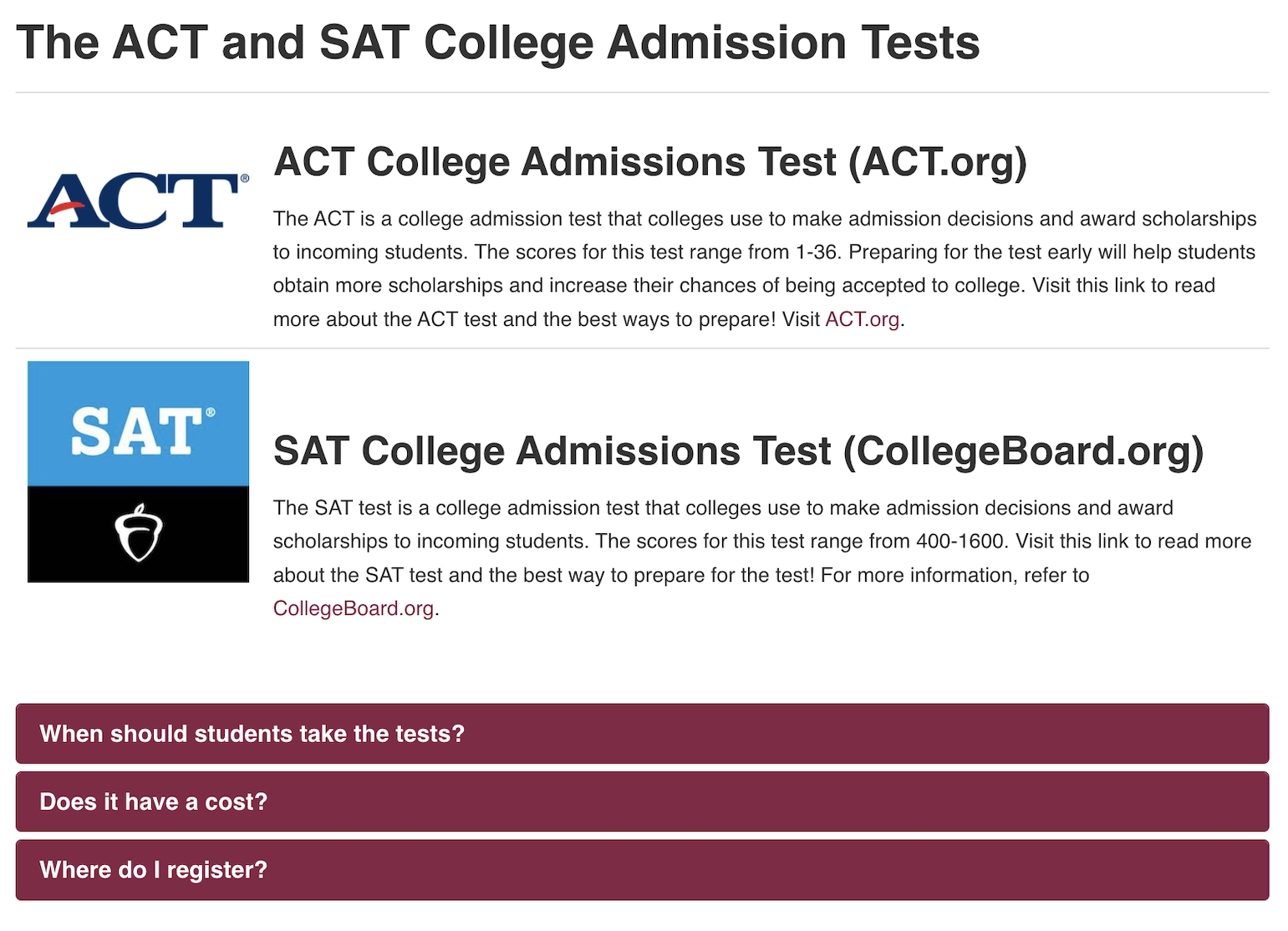
Photo of IRD's ACT and SAT webpage
Call to Action
Internship Partnership OpportunityIndian Resources Development at New Mexico State University and Land Grant Program at Navajo Technical University would like to invite tribal offices or businesses in New Mexico to be internship hosts. In collaboration with partners like you, IRD and LGP will offer opportunities that draw connections between tribal students’ cultural backgrounds and their academic experiences. The project will include relevant real-world internships, professional development, and career exploration opportunities. Would you like to meet with IRD to discuss the internship partnership project? Please email IRD at ird@nmsu.edu or call (575) 646-5617.
IRD College Advisory Committee
The IRD CAC is to be comprised of Native American college students from different higher education institutions in New Mexico to provide insight and guidance to IRD regarding how best to serve tribal students in the state of NM in the areas on which IRD works and focuses. In turn, CAC is designed to provide the following benefits to its members:
- The experience of serving in a professional advisory role
- Developing new connections with fellow Native American students
- Advancing initiatives of tribal communities
- Professional development opportunities
- Letter of service at the end of each academic year
Please submit a letter of interest and resume to: ird@nmsu.edu
For more information, visit us at: IRD College Advisory Committee
American Indian Business Enterprise and IRD Provide Entrepreneurial Opportunities
Having a dream to open a business seems almost impossible for Native American students and community members. There are limited resources available on tribal lands and figuring out the first step can be difficult. The American Indian Business Enterprise (AIBE) provides services to Native American entrepreneurs. These services are available through partnerships with IRD and New Mexico Community Capital. According to NMSU Arrowhead Center, "The American Indian Business Enterprise Center provides an abundance of services and a number of potential resources ranging from funding opportunities, free online business training, one-on-one business advising, and access to over 50 professional advisors including accountants, intellectual property, and business attorneys."
During the pandemic, founders of El ROI Café and Coat of Colors in Albuquerque, NM reached out to AIBE for assistance with their businesses and took courses to increase their knowledge of opening a business. El ROI Café and Coat of Colors had their grand openings in May 2021. Read about their story here.
In addition to entrepreneurial services, AIBE offers an internship program through a partnership with IRD. If anyone is interested in the internship program, visit American Indian Business Enterprise or contact Brooke Montgomery at mbrooke@nmsu.edu or call (575) 646-1859.
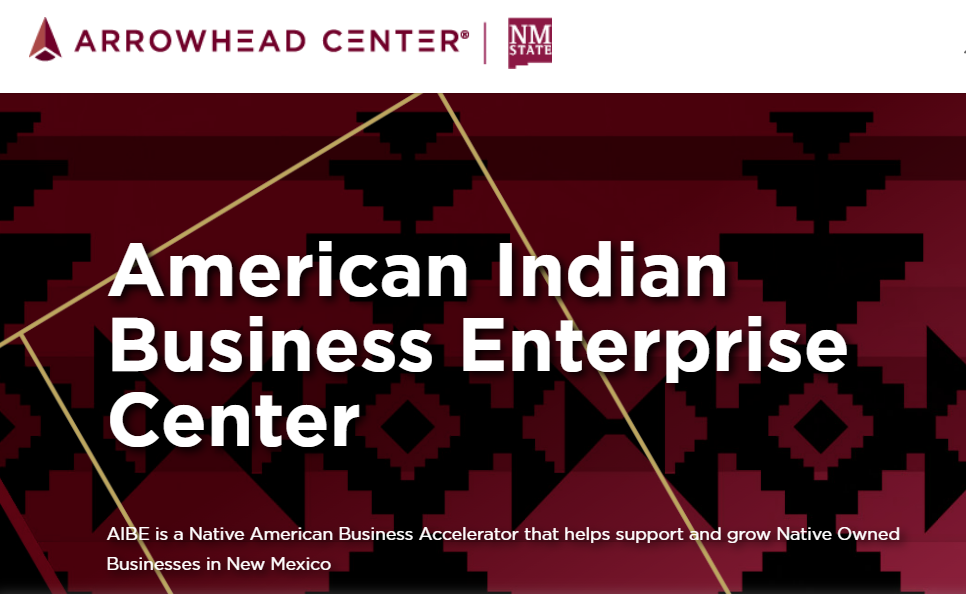
Photo of NMSU Arrowhead Center's
American Indian Business Enterprise
